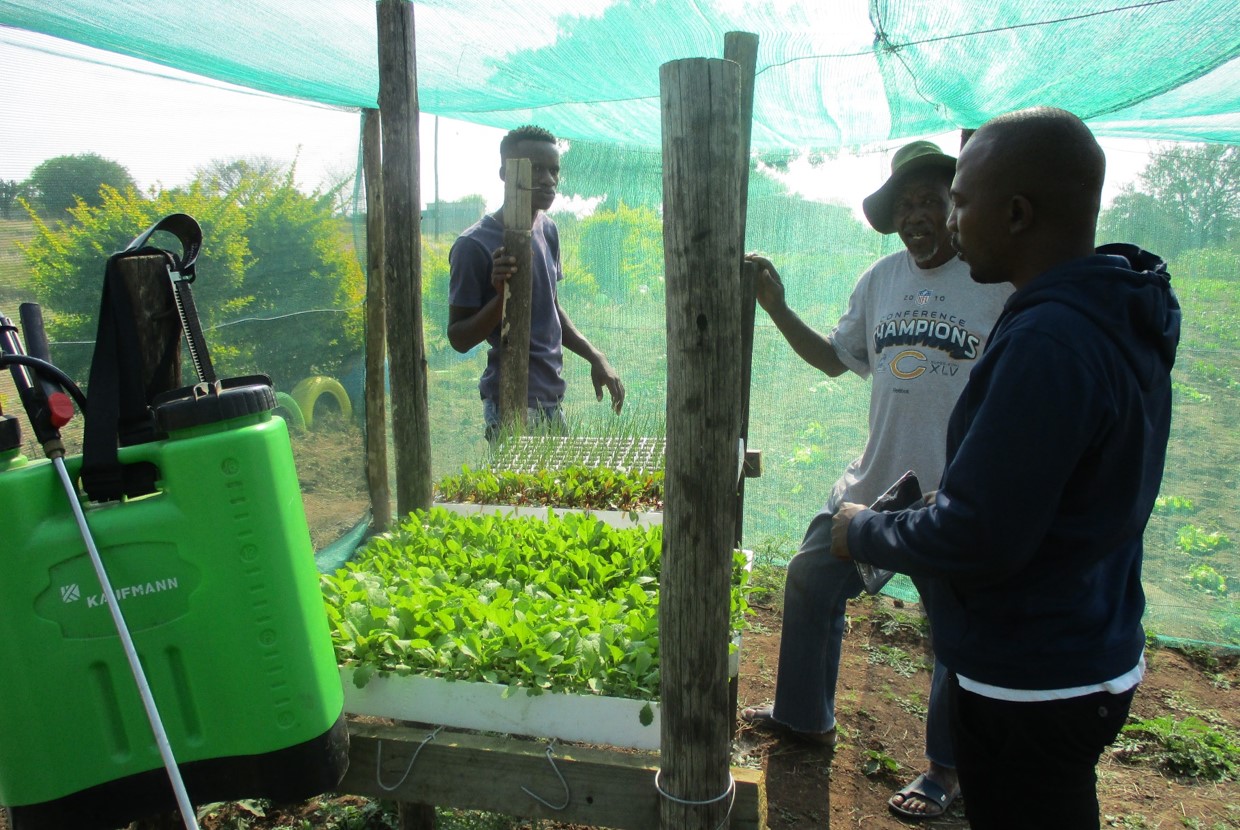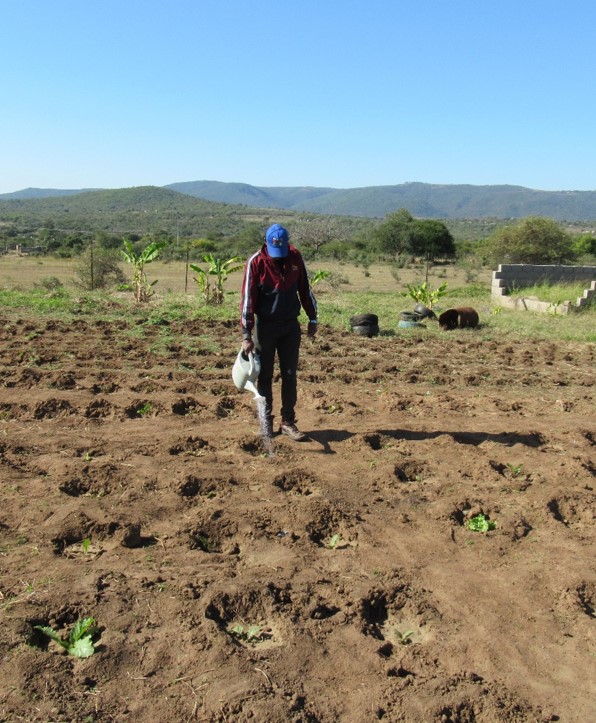Happy Farm in Eswatini: Unites the community
.jpg)
"We are located in the lowland area of Eswatini. Our crops are often subject to high temperatures, but these environmental constraints have not deterred us from our dream of farming within the community," said Ms. Matsebula, a community caregiver from the Thulwane community.
In recent years, due to the extreme climate, Russo-Ukrainian War, the economic crisis, and other factors, global food prices remain high by historical standards. Food security has become a major concern around the world.
Long considered one of the most volatile regions in the world in terms of food supply, the continent had an estimated 200 million hungry people in 2014. Still, by 2019 the number had exceeded 250 million, with 234.7 million of the hungry in the sub-Saharan Africa area. Millions of Africans suffer from micronutrient deficiencies, overweight, and obesity as a result of food problems, with adverse effects on health and quality of life.
Eswatini, in sub-Saharan Africa, suffered a severe drought at the end of 2020, waterlogging the following year due to extreme weather conditions, and the continuing impact of the pandemic on the regional economy, exacerbating the country's food problems. In the comprehensive classification of the food security stage, 20 percent of the country's population is in the "crisis" state; 2 percent of the population is in the "emergency" stage, meaning that nearly 1/4 people in the country are facing severe hunger.
Aware of the urgency of food issues in the country, TFCF has partnered with Neighborhood Care Points (NCPs), since we established the Eswatini branch office in 2013, to provide adequate supplies to feed community children.
“Done is better than perfect” — in the beginning, we focused on the feeding capacity of the community kitchen. As the meals provided by the community kitchen became more stable, we began to focus on the quality of the meals. We observe that meals in community kitchens contain lots of carbohydrates for the main course, sprinkled with only a few vegetables or proteins. The study found that children under 5 years of age in Africa ate fewer vegetables, unprocessed red meat, and milk than in other parts of the world, which is consistent with the observations by TFCF social workers.
After assessing the environment and resource conditions of the community, TFCF Eswatini started to promote the "Happy Farm Program", setting up small-scale farms in the community to grow fruits and vegetables. The harvested crops can be used for meals, adding dietary fiber and essential vitamins to the children's meals, and the community will have more funds to purchase eggs, beans, fish, and meat, so as to improve the quality of meals.
Thulwane community is one of the focal communities of the Happy Farm Program. In 2012, a miniature demonstration farm of about 20 square meters started. TFCF provided seedlings, fertilizer, pesticides, and various farm tools depending on its operation. As the Happy Farm Program continues to be implemented, TFCF has observed that these resources, while essential and somewhat effective, are not enough to make communities self-sufficient. Therefore, starting in 2021, the Happy Farm Program is not only about providing physical resources for community farms, but also about improving agricultural knowledge and planting techniques.
We work with professional agricultural consultants to understand the resources and capabilities of each community, and plan courses that meet the needs of the community with field operations, from the initial stage of sowing schedule planning, pesticide and fertilizer application, advanced to the nursery field setting, seedling training, as well as farm record training, etc. The program enables the community to grow crops in a more modern and scientific way so as to improve the quality and yield of harvests.

Despite the time and effort of TFCF and the community, the journey has not been easy. The Thulwane community is located in the lowland area of Eswatini. The climate is relatively hot and the rainfall is low, which often affects the growth of crops. On the other hand, human mobility is also a big challenge for Happy Farm. The smooth operation of the farm depends to some extent on the abundant manpower provided by the community, and the continuous cultivation.
However, in practice, people often choose to quit due to various factors, which will affect the inheritance of skills and experience, and sometimes even affects the motivation of the whole community. Fortunately, Thulwane was not defeated by these difficulties, and they never gave up on the farm!
"It takes a village to raise a child." We do see the perseverance and resilience of the community. No matter what difficulties they encounter, they can unite the community from point to point, from family to community, and gather resources and strength to take care of the children who need to be fed.
The tiny farm, which was just 20 square meters 10 years ago, has grown to cover nearly two hectares. In addition to growing vegetables for community meals, some of the crops are sold and used to care for children in the community and to upgrade farm equipment. In recent years, as the farm acreage has expanded, the community is planting vegetables and corn, which is used as a staple food throughout the year, allowing the community to spend as much money as possible on purchasing other protein-rich ingredients. However, many aspects of planting technology and management need to be improved. The community has the potential to do more and better!
TFCF Eswatini is actively planning for additional marketing programs to enable the community to become more self-sufficient. Although the road is bumpy, we will accompany the Thulwane community. Hoping all the children can eat healthily and grow up strong!

